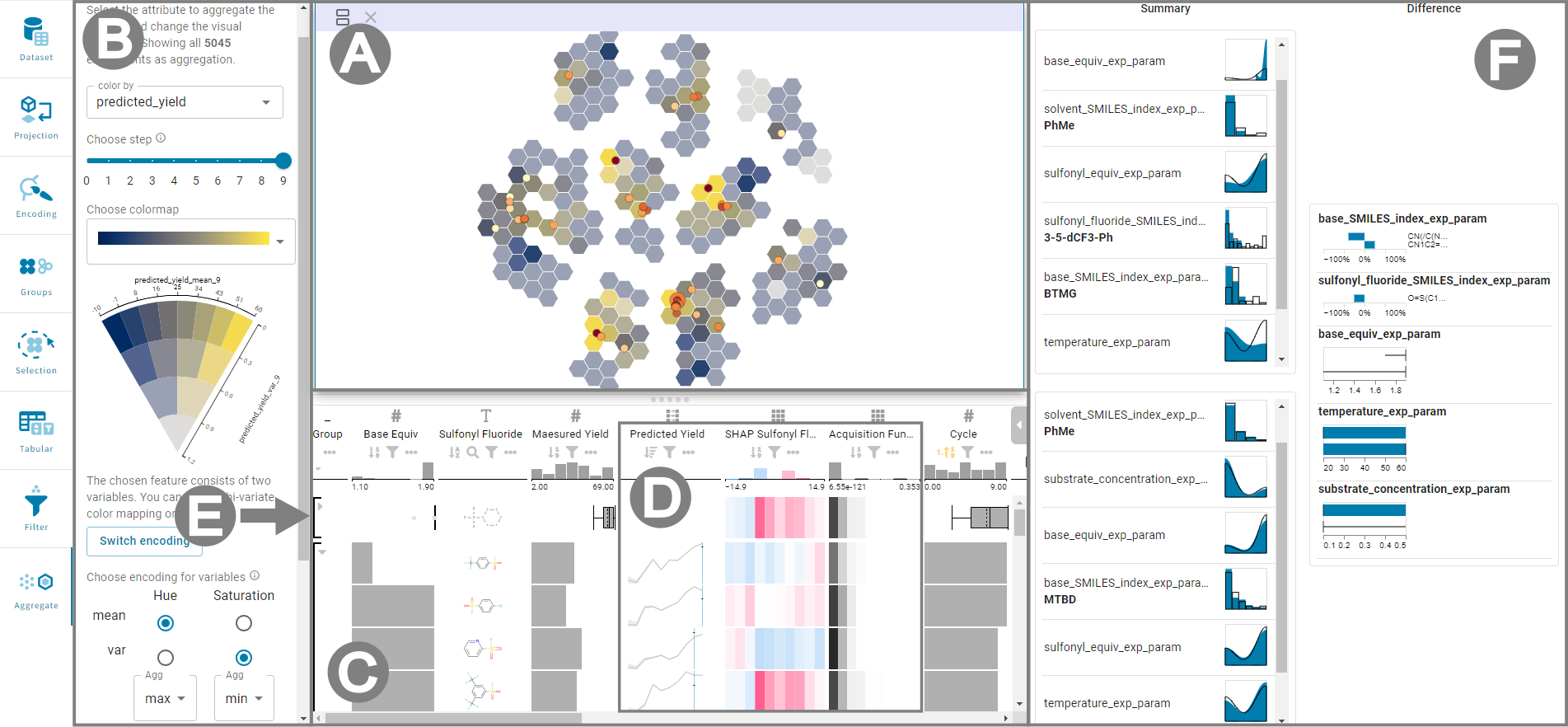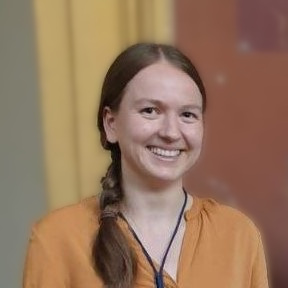
Abstract
Chemical reaction optimization (RO) is an iterative process that results in large, high-dimensional datasets. Current tools allow for only limited analysis and understanding of parameter spaces, making it hard for scientists to review or follow changes throughout the process. With the recent emergence of using artificial intelligence (AI) models to aid RO, another level of complexity has been added. Helping to assess the quality of a model’s prediction and understand its decision is critical to supporting human-AI collaboration and trust calibration. To address this, we propose CIME4R—an open-source interactive web application for analyzing RO data and AI predictions. CIME4R supports users in (i) comprehending a reaction parameter space, (ii) investigating how an RO process developed over iterations, (iii) identifying critical factors of a reaction, and (iv) understanding model predictions. This facilitates making informed decisions during the RO process and helps users to review a completed RO process, especially in AI-guided RO. CIME4R aids decision-making through the interaction between humans and AI by combining the strengths of expert experience and high computational precision. We developed and tested CIME4R with domain experts and verified its usefulness in three case studies. Using CIME4R the experts were able to produce valuable insights from past RO campaigns and to make informed decisions on which experiments to perform next. We believe that CIME4R is the beginning of an open-source community project with the potential to improve the workflow of scientists working in the reaction optimization domain.
Citation
Christina
Humer,
Rachel Nicholls,
Henry Heberle,
Moritz Heckmann
Michael Pühringer,
Thomas Wolf,
Maximilian Lübbesmeyer,
Julian Heinrich,
Julius Hillenbrand,
Giulio Volpin,
Marc
Streit
CIME4R: Exploring iterative, AI-guided chemical reaction optimization campaigns in their parameter space
Journal of Cheminformatics,
16(51):
doi:10.1186/s13321-024-00840-1, 2024.
BibTeX
@article{2024_cime4r,
title = {CIME4R: Exploring iterative, AI-guided chemical reaction optimization campaigns in their parameter space},
author = {Christina Humer and Rachel Nicholls and Henry Heberle and Moritz Heckmann and Michael Pühringer and Thomas Wolf and Maximilian Lübbesmeyer and Julian Heinrich and Julius Hillenbrand and Giulio Volpin and Marc Streit},
journal = {Journal of Cheminformatics},
doi = {10.1186/s13321-024-00840-1},
url = {https://doi.org/10.1186/s13321-024-00840-1},
volume = {16},
number = {51},
month = {5},
year = {2024}
}
Acknowledgements
This work was supported by the JKU Visual Data Science Lab and Bayer AG. We thank Niklas H ̈olter for support in the early testing of CIME4R and for participating in the case studies. We thank Dominic Girardi for UI testing. We thank Ingrid Abfalter for scientific editing.
Funding
This work was supported in part by Bayer AG, State of Upper Austria and the Austrian Federal Ministry of Education, Science and Research via the LIT – Linz Institute of Technology (LIT-2019-7-SEE-117), and the Austrian Science Fund (FWF DFH 23–N). Funding by the Life Science Collaboration Program of Bayer AG (Projects ”LSC MIC DROP” and ”Explainable AI” ) is gratefully acknowledged.



